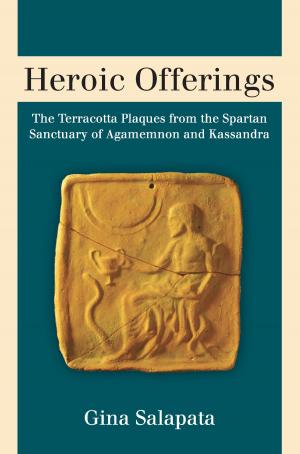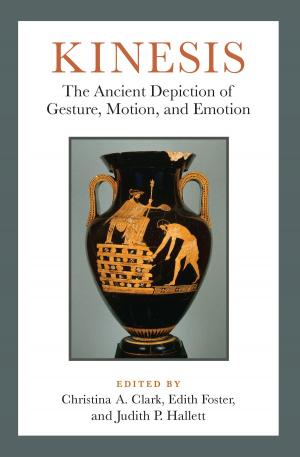Hallowed Stewards
Solon and the Sacred Treasurers of Ancient Athens
Nonfiction, History, Ancient History, Greece| Author: | William S Bubelis | ISBN: | 9780472120574 |
| Publisher: | University of Michigan Press | Publication: | June 23, 2016 |
| Imprint: | University of Michigan Press | Language: | English |
| Author: | William S Bubelis |
| ISBN: | 9780472120574 |
| Publisher: | University of Michigan Press |
| Publication: | June 23, 2016 |
| Imprint: | University of Michigan Press |
| Language: | English |
Students of ancient Athenian politics, governance, and religion have long stumbled over the rich evidence of inscriptions and literary texts that document the Athenians’ stewardship of the wealth of the gods. Likewise, Athens was well known for devoting public energy and funds to all matters of ritual, ranging from the building of temples to major religious sacrifices. Yet, lacking any adequate account of how the Athenians organized that commitment, much less how it arose and developed, ancient historians and philologists alike have labored with only a paltry understanding of what was a central concern to the Athenians themselves. That deficit of knowledge, in turn, has constrained and diminished our grasp of other essential questions surrounding Athenian society and its history, such as the nature of political life in archaic Athens, and the forces underlying Athens’ imperial finances.
Hallowed Stewards closely examines those magistracies that were central to Athenian religious efforts, and which are best described as “sacred treasurers.” Given the extensive but fragmentary evidence available to us, which consists mainly of inscriptions but includes such texts as the ps.-Aristotelian Constitution of the Athenians, no catalog-like approach to these offices could properly encompass their details, much less their wider significance. By situating the sacred treasurers within a broader religious and historical framework, Hallowed Stewards not only provides an incisive portrait of the treasurers themselves but also elucidates how sacred property and public finance alike developed in ancient Athens.
Students of ancient Athenian politics, governance, and religion have long stumbled over the rich evidence of inscriptions and literary texts that document the Athenians’ stewardship of the wealth of the gods. Likewise, Athens was well known for devoting public energy and funds to all matters of ritual, ranging from the building of temples to major religious sacrifices. Yet, lacking any adequate account of how the Athenians organized that commitment, much less how it arose and developed, ancient historians and philologists alike have labored with only a paltry understanding of what was a central concern to the Athenians themselves. That deficit of knowledge, in turn, has constrained and diminished our grasp of other essential questions surrounding Athenian society and its history, such as the nature of political life in archaic Athens, and the forces underlying Athens’ imperial finances.
Hallowed Stewards closely examines those magistracies that were central to Athenian religious efforts, and which are best described as “sacred treasurers.” Given the extensive but fragmentary evidence available to us, which consists mainly of inscriptions but includes such texts as the ps.-Aristotelian Constitution of the Athenians, no catalog-like approach to these offices could properly encompass their details, much less their wider significance. By situating the sacred treasurers within a broader religious and historical framework, Hallowed Stewards not only provides an incisive portrait of the treasurers themselves but also elucidates how sacred property and public finance alike developed in ancient Athens.















